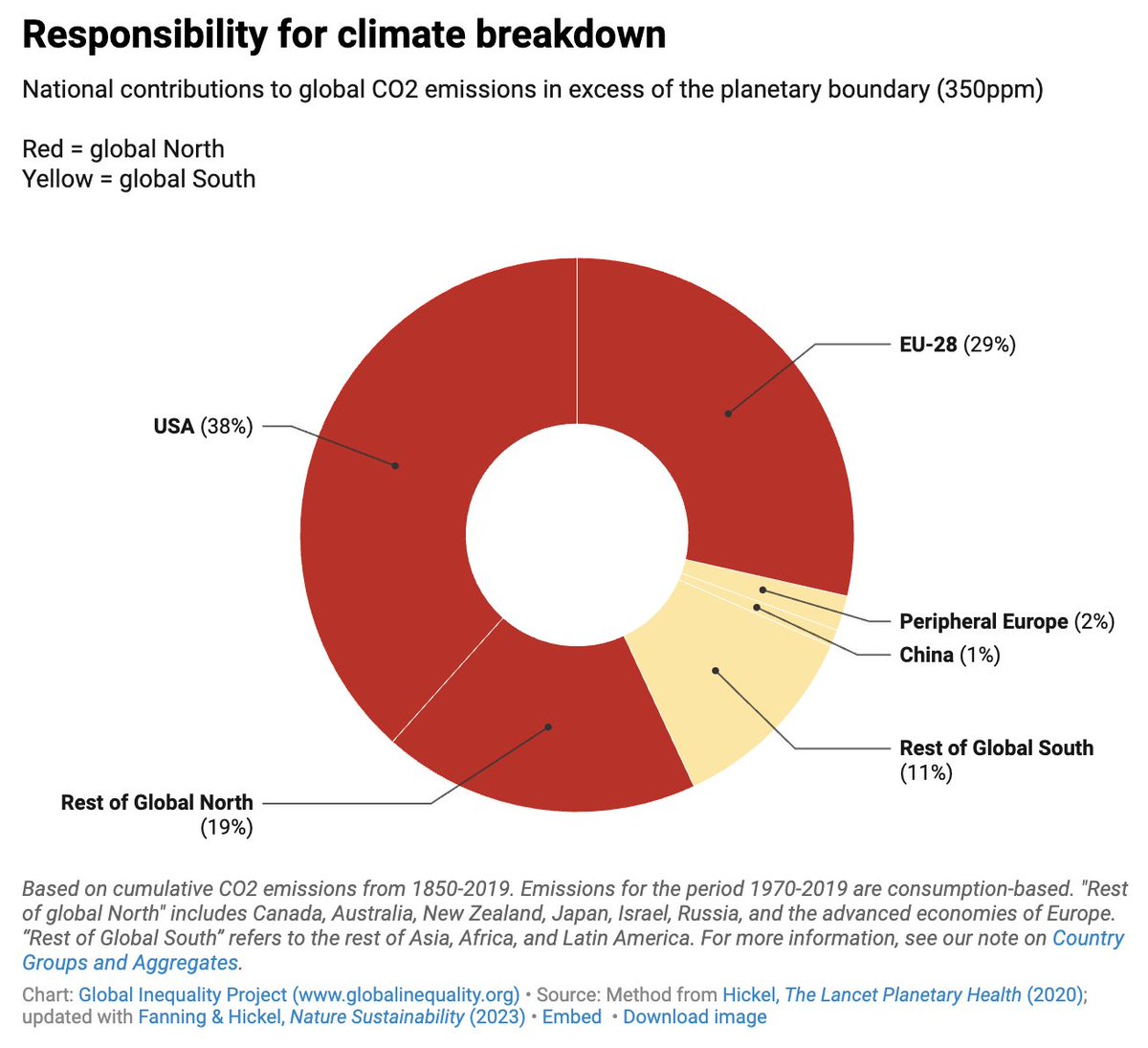Some excellent words from the recent @IPBES report on how to reverse biodiversity collapse:
"A key constituent of sustainable pathways is steering away from the current limited paradigm of economic growth..." 1/3
"A key constituent of sustainable pathways is steering away from the current limited paradigm of economic growth..." 1/3
"...That implies incorporating the reduction of inequalities into development pathways, reducing overconsumption and waste and addressing environmental impacts such as externalities of economic activities, from the local to the global scales..." 2/3
"...Such an evolution would also entail a shift beyond standard economic indicators such as gross domestic product to include those able to capture more holistic, long-term views of economics and quality of life." #postgrowth 3/3
• • •
Missing some Tweet in this thread? You can try to
force a refresh









